Search Definitions
Browse Content (p. 195)
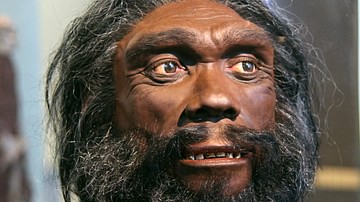
Definition
Homo Heidelbergensis
Homo heidelbergensis is an extinct species of human that is identified in both Africa and western Eurasia from roughly 700,000 years ago onwards until around 200,000 years ago – fitting snugly within the Middle Pleistocene. Named for a piece...
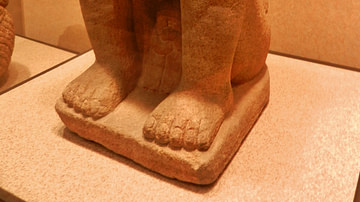
Definition
Ehecatl
Ehecatl was a Mesoamerican god of air and winds, especially those which brought rains. Regarded as a manifestation of the great feathered serpent god Quetzalcoatl, he was sometimes known as Quetzalcoatl-Ehecatl, in which guise he helped create...
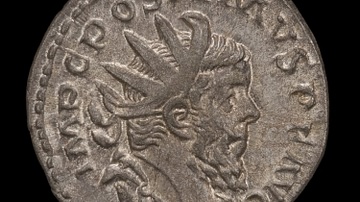
Definition
Postumus
Postumus was Roman emperor from 260 to 269 CE. Marcus Cassianus Latinius Postumus was a trusted military commander of Emperor Gallienus (253-268 CE) and governor or Germania Superior and Inferior (Upper and Lower Germany). After the death...
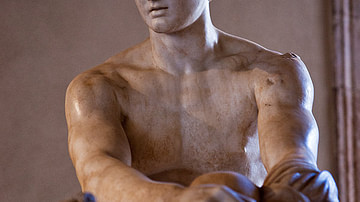
Definition
Ares
Ares was the Greek god of war. He was perhaps the most unpopular of all the Olympian gods because of his quick temper, aggressiveness, and unquenchable thirst for conflict. Ares famously seduced Aphrodite, unsuccessfully fought with Hercules...
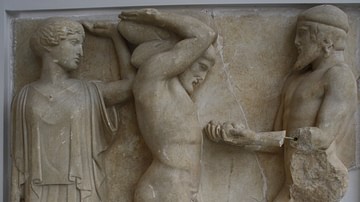
Definition
Atlas - The Greek Titan Who Held up the World
In Greek mythology, the Titan Atlas was responsible for bearing the weight of the heavens on his shoulders, a burden given to him as punishment by Zeus. Father of many stars and a protagonist in one of Hercules' famous labours, Atlas was...
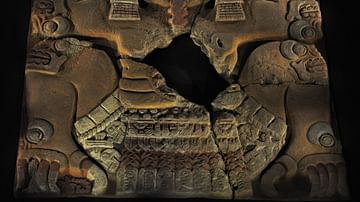
Definition
Tlaltecuhtli
Tlaltecuhtli, 'Earth Lord/Lady,' was a Mesoamerican earth goddess associated with fertility. Envisioned as a terrible toad monster, her dismembered body gave rise to the world in the Aztec creation myth of the 5th and final cosmos. As a source...
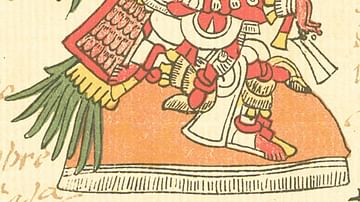
Definition
Tlahuizcalpantecuhtli
Tlahuizcalpantecuhtli, 'Dawn Lord,' was a Mesoamerican god who represented a menacing aspect of Venus, the morning star, and was one of the four gods which held up the sky. The people of the ancient Americas believed his rays could damage...
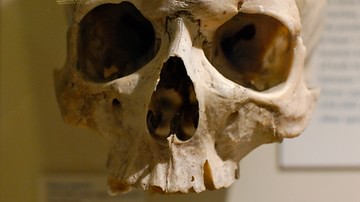
Definition
Homo Sapiens
Homo sapiens ('wise man'), or modern humans, are the only species of human still around today. Despite having invented countless ways of labelling the world around us, we have so far done a surprisingly poor job at defining ourselves. Originating...
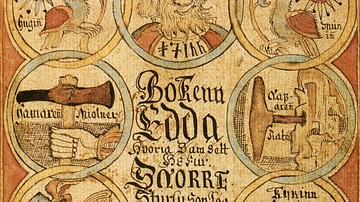
Definition
Edda
Edda is a term used to describe two Icelandic manuscripts that were copied down and compiled in the 13th century CE. Together they are the main sources of Norse mythology and skaldic poetry that relate the religion, cosmogony, and history...
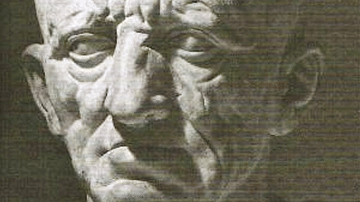
Definition
Censor - The All-Powerful Magistrate of Ancient Rome
A censor was one of two senior magistrates in the city of ancient Rome who supervised public morals, maintained the list of citizens and their tax obligations known as the census, and gave out lucrative public contracts and tax collecting...